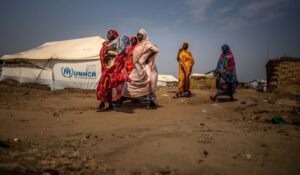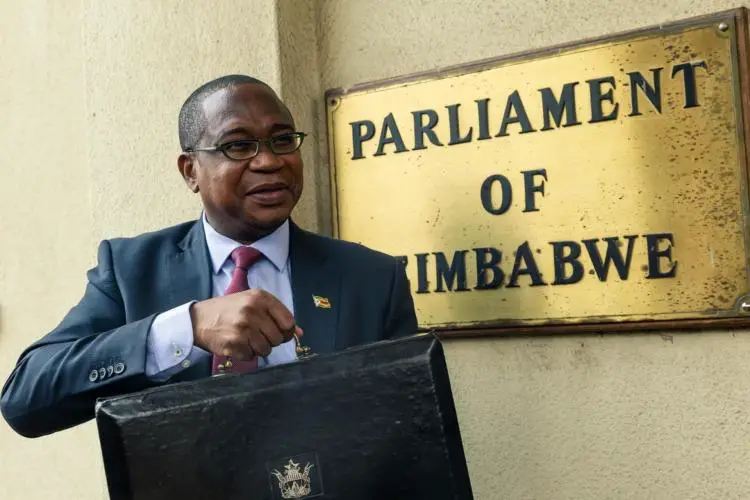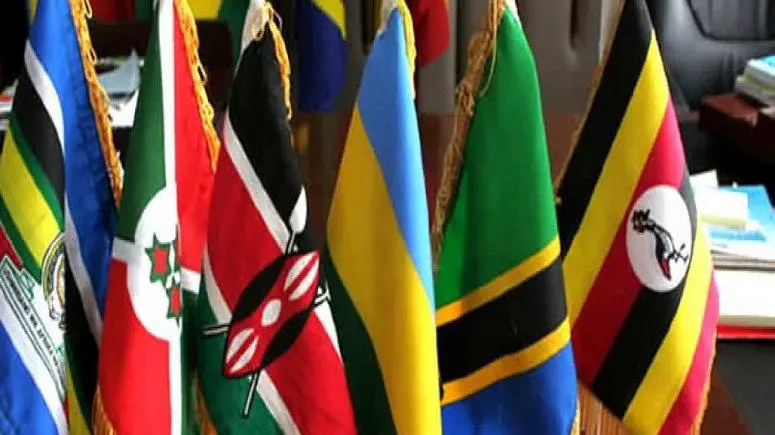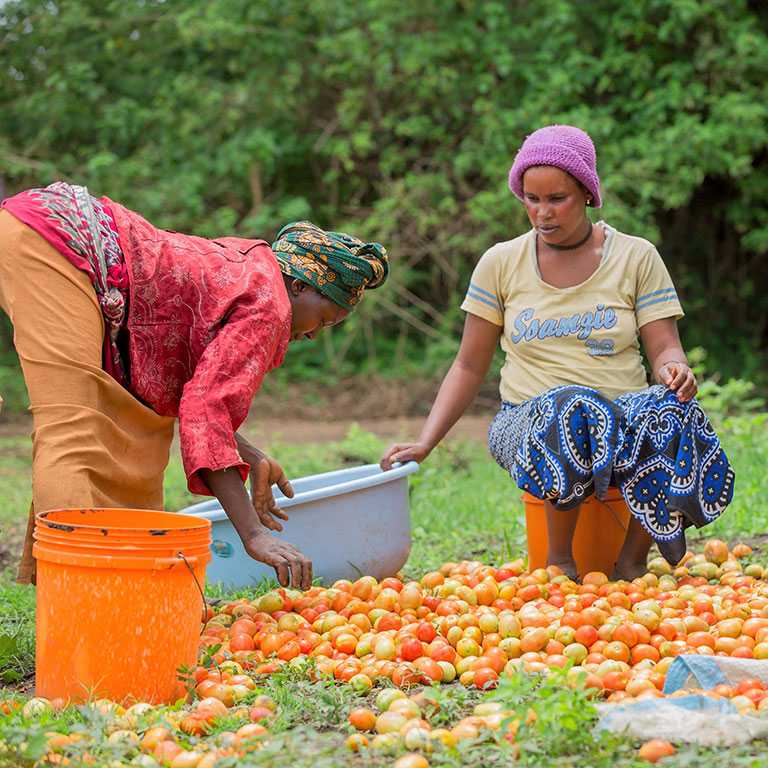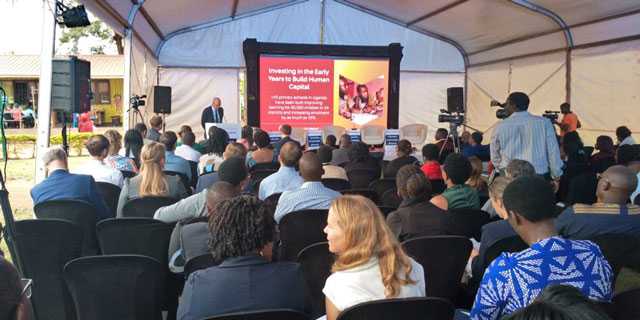- IMF’s Sub-Saharan Africa economic forecast shows 1.2 percent GDP growth
- The US Congress proposes extending Agoa to 2041, covering all African countries
- Millions at risk of famine as fuel tax row halts UN aid operations in South Sudan
- Empowering the Future: Humanity Protocol’s Dream Play Initiative
- TikTok Community Guidelines update aims to curb hate speech and misinformation
- Rwanda sees 39% surge in bank borrowers as Sacco and MFI loan uptake declines
- Kenya Ports Authority wins dispute case over cargo release
- Why Africa can reap billions from digital economy
Browsing: economic growth
Treasury is expected to continue its trajectory f fiscal consolidation and discipline together with increasing incentives to grow investments in value chain sectors and stability in power supply.
On the taxation front the budget was expected to provide relief to the poor who make up at least 49.9 per cent of the population of the country. This is particularly significant because it has been said on several occasions that Zimbabwean people are among the most taxed in southern Africa.
This is partly the legacy of the minister of finance’s austerity for prosperity policy which resulted in a largely resented 2 per cent transfer tax on all transactions. There have been calls for this tax to be repealed and the tax-free threshold to be increased.…
- The East African economic growth is projected to recover this year despite COVID-19 setback thanks to sustained public spending on infrastructure and improved performance of the agricultural sector
- The bloc’s growth is likely to reach an average of 4.1 percent this year, up from 0.4 percent posted last year
The East African economic growth is projected to recover this year despite the COVID-19 setback thanks to sustained public spending on infrastructure and improved performance of the agricultural sector.
This is according to a new report by the African Development Bank’s (AfDB) which indicates that the bloc’s growth is likely to reach an average of 4.1 percent this year, up from 0.4 percent posted last year.
In its latest economic outlook report for the region, AfDB shows that next year average growth is projected to hit 4,9 percent.
Further, the report reveals that COVID-19 containment measures and global supply and demand …
Kenya’s economic activity increased marginally in July from the previous month, a new survey has revealed.
The survey also found that domestic demand improved by the second slowest pace since the lifting of public health restrictions after the first wave of pandemic, with some firms reporting a drop in customer numbers.
The survey was commissioned by and compiled by IHS Markit from responses to questionnaires sent to purchasing managers in a panel of around 400 private sector companies in the country.
It also reveals that growth momentum in the private sector slowed again at the start of the third quarter of the year, as surveyed businesses reported weaker expansions in output, new orders, employment and purchasing.
At the same time, cost inflationary pressures rose to a 16-month high as tax changes resulted in a sharp uptick in purchase prices.
This led to a decline of the headline Purchasing Manager’ Index …
Uganda’s Central Bank noted that easing of lockdown put in place as a measure to prevent the spread of covid-19 has led to economic growth recovery.
The Bank of Uganda in its latest monetary policy statements said that economic growth recovery has been supported by the easing of lockdown, a feeble improvement in both foreign and domestic demand as well as the stability of the exchange rate.
The government of Uganda started easing restrictions on some parts of the economy which had been affected by the pandemic in may.
Uganda’s Central Bank forecasts that the 2020/2021 financial year will see some growth of between 2.0-3.0 per cent which could increase to up to 6.0 per cent in 2021/22. The growth estimated before the pandemic which was of more than 6 per cent is forecast to be attained after 2022.
The 9 pm to 6 am curfew still remains in place …
The largest movement of African migrants was within Africa where these emigrants also make a very clear contribution to the economy of the country they move into.…
Tanzania’s Social Action Fund (TASAF), a poverty-reduction base will get a $562 million loan to support its second phase.
According to information from The Citizen, over $800 will be spent during the five years of implementing the phase, officially launched earlier today by Tanzania’s President John Magufuli.
Also, the information revealed that the rest of the amount will be sourced from various other development partners including the Opec Fund for International Development set to issue $50 million.
However, TASAF director-general Ladislaus Mwamanga, highlighted that the programme goals are set to empower poor households with funds, known as ‘Productive Social Safety Net’ with which they can conduct their income-generating activities.
The safety net which was initiated in 2000, had over 1.1 households in Tanzania with over 5.2 people enrolled in the programme.
During the launch, it was revealed that TASAF spent over $692 million in poverty alleviation programmes national wide.
Also, …
Uganda’s economy grew by 6.5 per cent in the fiscal year 18/19, maintaining the rebound in economic activity over the last two years, according to the latest edition of the Uganda Economic Update released by the World Bank.
The 14th Uganda Economic Update report, “Strengthening Social Protection Investments to Reduce Vulnerability and Promote Inclusive Growth” shows that the country’s economy was boosted by strong consumer spending and sustained levels of public and private investment.
The World Bank advised that in order to control shocks and support more inclusive growth, Uganda’s government should expand social protection programs to areas with the highest levels of vulnerability and risk.
“Recent favourable weather and stronger agricultural growth has contributed to the recovery of household incomes and lowered the estimated poverty levels down to those observed in the 2012-2013 fiscal year. However, environmental shocks and climatic risks can quickly reverse this trend.” said the report.…
FDI dropped by a third, to US$1.0 billion from US$1.5 billion in the three years between 2015 and 2018.…


